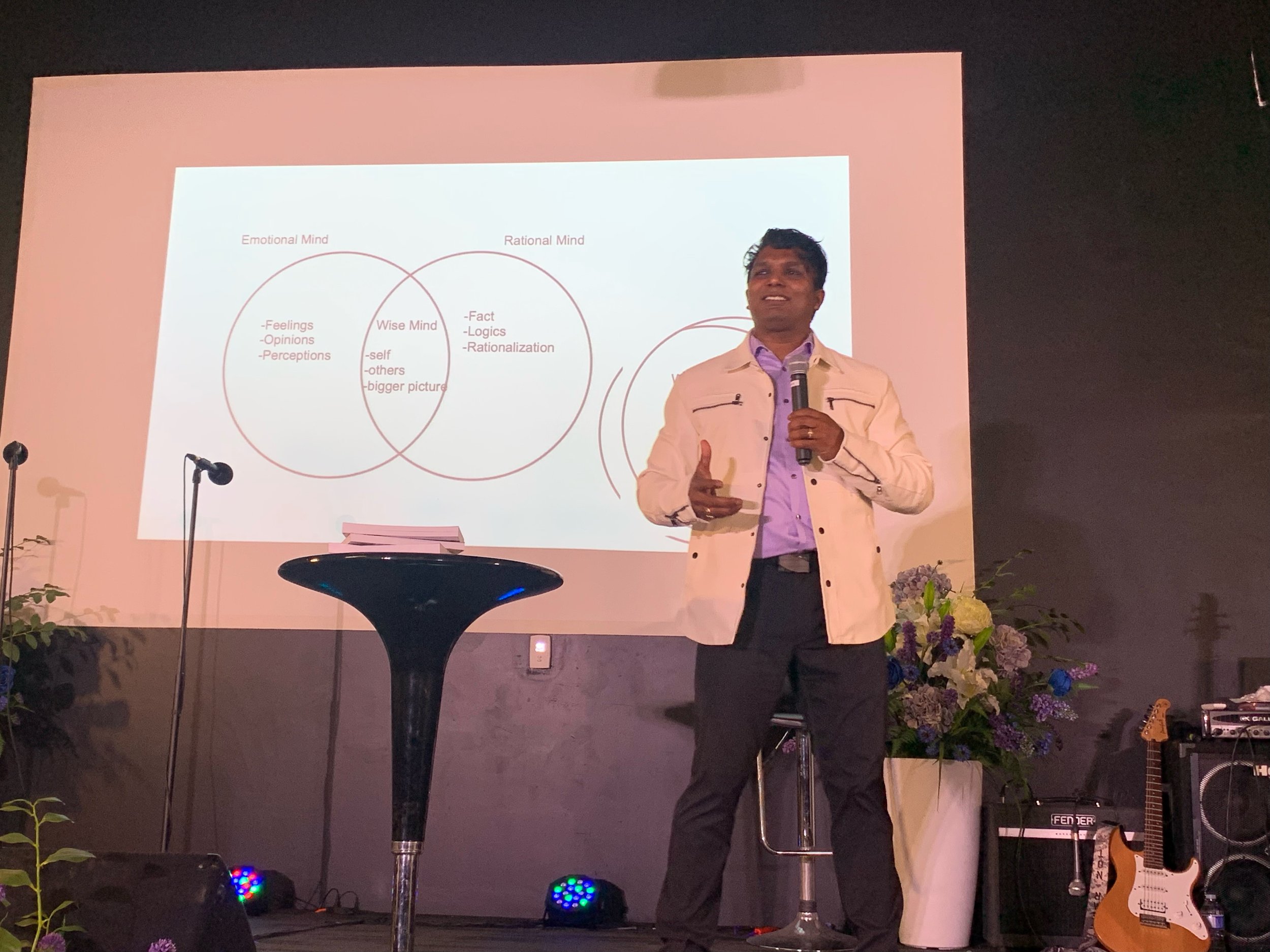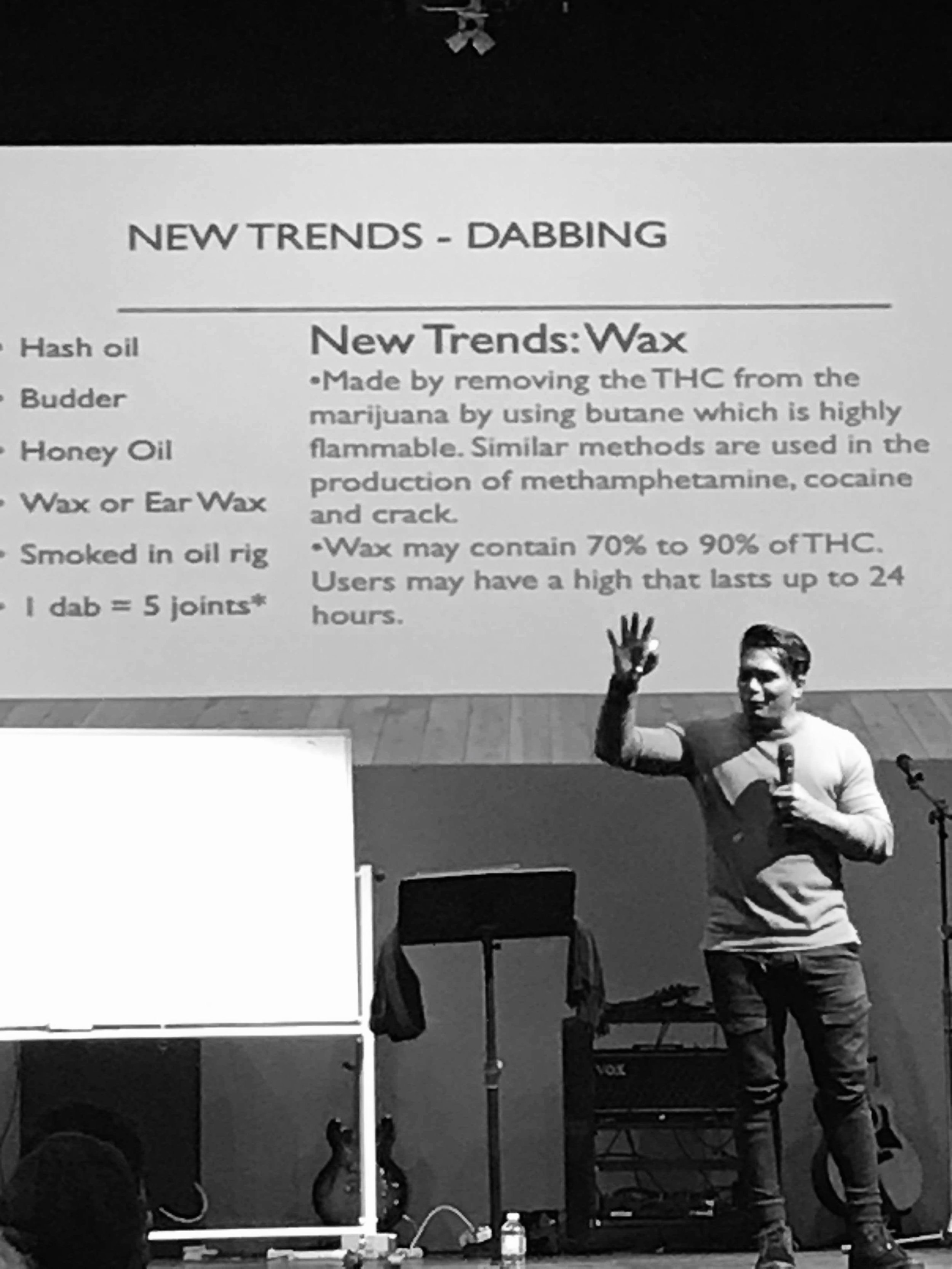Mental Health Coach



Harrison is both a gifted therapist and counsellor in the areas he is passionate about; relationships, mental health, and leadership. What makes him unique is his ability to uncover and innovate new ways of helping people live lives they love. His powerful ad contagious communication style brings wisdom, insight and humour to situations that are often difficult and uncomfortable.
Harrison Mungal Mental Health COACHING
Join an exciting Team of Professionals!
If you are a Social Worker, Psychotherapist, Nurse, Social Services Worker, Community Support Worker, First Responder (Police Officer, Fire Fighter, EMS Worker,), PSW, RT, PT, or even Doctors from any profession. Harrison Mungal Mental Health COACHING is geared towards professionals who want to learn more about mental health and psychological issues.
10 days of intensive training (weekly 3.5 hrs classes)
Dates and Time: TBD
Cost: TBD
Location: Zoom/ In Person
Week One: MENTAL HEALTH VS MENTAL ILLNESSES
What is Mental Health?
What are Mental Illnesses?
How are diagnoses formulated for Mood, Addictions, OCD, Phobias, and Panic Attacks?
An overview of Anxiety, Depression, Psychosis.
Personality disorders.
Differentiating between a diagnosis and a behaviour.
Differentiating Mental illness and organic related issues, including delirium, dementia, Alzheimer's disease, and amnesia.
Differentiating Mental illness and PDD, including autism, Asperger's syndrome, and childhood disintegrative disorder.
What do professionals need to know about mental health and mental illnesses?
Week Two: ANXIETY
What is MAD?
What is Anxiety?
What are the criteria for MAD according to the DSM-V?
What are the common signs and symptoms of anxiety?
How to distinguish between a behaviour and an illness?
What’s responsible for anxiety?
What are some evidence-based therapies for anxiety?
What are some coping strategies for anxiety?
Why is it important to rule out SI/HI?
What do professionals need to know about Anxiety?
Week Three: MOOD DISORDERWhat is MDD?
What is depression?
What are the criteria for MDD according to the DSM-V?
What are the common signs and symptoms of depression?
How to distinguish between a behaviour and an illness?
What’s responsible for MDD?
What chemical is responsible for MDD?
What are some evidence-based therapies for depression?
What are some coping strategies for depression?
Why is it important to rule out SI/HI?
What do professionals need to know about MDD?
Week Four: PSYCHOSISWhat is Psychosis?
What is the difference between psychosis and drug-induced psychosis?
What are the criteria for psychosis according to the DSM-V?
What are the common signs and symptoms of psychosis?
What are the common signs and symptoms of drug-induced psychosis?
What types of substances and illicit drugs are responsible for psychosis?
How do substances and illicit drugs affect the brain?
How to distinguish between a behaviour and an illness?
What’s responsible for psychosis?
What chemical is responsible for psychosis?
What are some evidence-based therapies for psychosis?
What are some coping strategies for psychosis?
Why is it important to rule out SI/HI?
What do professionals need to know about psychosis?
Week Five: PERSONALITY DISORDERSWhat is PD?
What is PBD, Narcissism?
What is the difference between Borderline Personality Disorder and Narcissistic Behaviours?
What are the criteria for personality disorders according to the DSM-V?
What are the common signs and symptoms of Borderline Personality Disorder?
What are the common signs and symptoms of Narcissistic Behaviours?
How do Borderline Personality Disorder and Narcissistic Behaviours affect the individual and others?
How to distinguish between a behaviour and an illness?
What is responsible for personality disorders?
What are some evidence-based therapies for personality disorders?
What are some coping strategies for personality disorders?
Why is it important to rule out SI/HI?
What do professionals need to know about personality disorders?
Week Six: ADDICTIONSWhat are substance abuse and addictions?
What is the difference between substance use and addictions?
What are the criteria for addictions according to the DSM-V?
What are the common signs and symptoms of addictions?
What are common types of addictions?
How do addictions affect the brain?
What’s responsible for addictions?
What chemical is responsible for addictions?
What are some evidence-based therapies for addictions?
What are some coping strategies for addictions?
Why is it important to rule out SI/HI?
What do professionals need to know about addictions?
Week Seven: EMOTIONAL WOUNDSWhat are Emotional wounds?
What is Trauma and Abuse?
What is the difference between a trauma and an abuse?
What are the criteria for PTSD according to the DSM-V?
What are the common signs and symptoms of trauma, including PTSD?
What are the common signs and symptoms of abuse?
How do emotional wounds affect the individual and others?
How to distinguish between a behaviour and an illness?
What parts of the brain are affected by PTSD?
What are some evidence-based therapies for PTSD?
What are some coping strategies for emotional wounds?
Why is closure essential to emotional wounds?
Why is it important to rule out SI/HI?
What do professionals need to know about emotional wounds?
Week Eight: PSYCHOSOCIAL STRESSORSWhat are psychosocial stressors and contextual features?
What are the causes of psychosocial stressors?
How do we evaluate psychosocial stressors?
What does the DSM-V say about psychosocial stressors and contextual features?
What are the common signs and symptoms of psychosocial stressors?
How do psychosocial stressors affect the individual and others?
What are some evidence-based therapies for psychosocial stressors?
What are some coping strategies for psychosocial stressors?
Why is it important to rule out SI/HI?
What do professionals need to know about psychosocial stressors and contextual features?
Week Nine: ASSESSMENT TOOLS
What information is needed for a Mental Status Examination?
Why is psychological testing essential?
What testing can be completed for mood disorders, anxiety disorders, psychosis, and addictions, including alcohol and drugs?
What type of testing can be completed for traumas and Abuse?
What do professionals need to know about Assessment Tools?
Week Ten: MOTIVATIONAL INTERVIEWING TECHNIQUESHow do you prepare for a clinical assessment?
What information MUST be covered in assessing someone?
How do you assess an individual and decide on apprehension or hospital visit within 5 minutes?
What are Motivational Interviewing Techniques, and how to implement them?
How do you retrieve information?
What types of questions to ask?
How do you maintain a flow in asking questions?
How do you maintain a rapport with a patient/client?
What do professionals need to know about MIT?
Week Eleven: MENTAL HEALTH PROFESSIONAL REPORT
What is a mental health clinical report?
What must be included in a mental health clinical report?
How to write a mental health/psychological report?
What do professionals need to know about report writing?
Week Twelve: QUESTIONS AND ANSWERS
When can patient/client confidentiality be broken?
What’s the difference between Canada’s PHIPA AND HIPAA
What are the different health care forms (examples 1, 2, 4)?
What are the criteria for apprehension under Section 17 of the MHA?
What are the patient’s rights when placed on a form?
What is a patient’s right to refuse medications?
Multiaxial system of diagnosis and the DSM-V?
How do you formulate a crisis or action plan for a patient/client?
Why is psychoeducation important?
To register and for more information call 905-533-1334 or email info@agetoage.ca
Keynotes, Seminars, Conferences
“Harrison Mungal is known for his passion, enthusiasm, charisma and high energy.”
”He is considered #1 for his communication strength in leadership, mental health and relationships.”
Assessments, Interviewing and report Writing
Counselling Strategies and Interventions
Mental Status Assessments and Mini Mental
Mental Health verses Mental Illness
Progressive Managerial Strategies
Program development
Emotional First Aid
Behavioural Counselling and Intervention
Supporting parents with teenage issues
Cognitive Behaviour Therapy (CBT)
Dialectical Behaviour Therapy (DBT)
Thought Developmental Practice (TDP)
Understanding and Managing Borderline Personality Disorder
Music Therapy and Schizophrenia
PTSD, Vicarious trauma
Responding to Trauma
Medication workshops – (anti depressants, anti anxiety, psychotic meds)
Concurrent and Dual diagnoses
Interviewing in Mental Health
Treat The Mind- Respect The Body
Rewiring Your Brain
Motivating Energy in Major Mood Disorder
Drug Induced Psychosis







